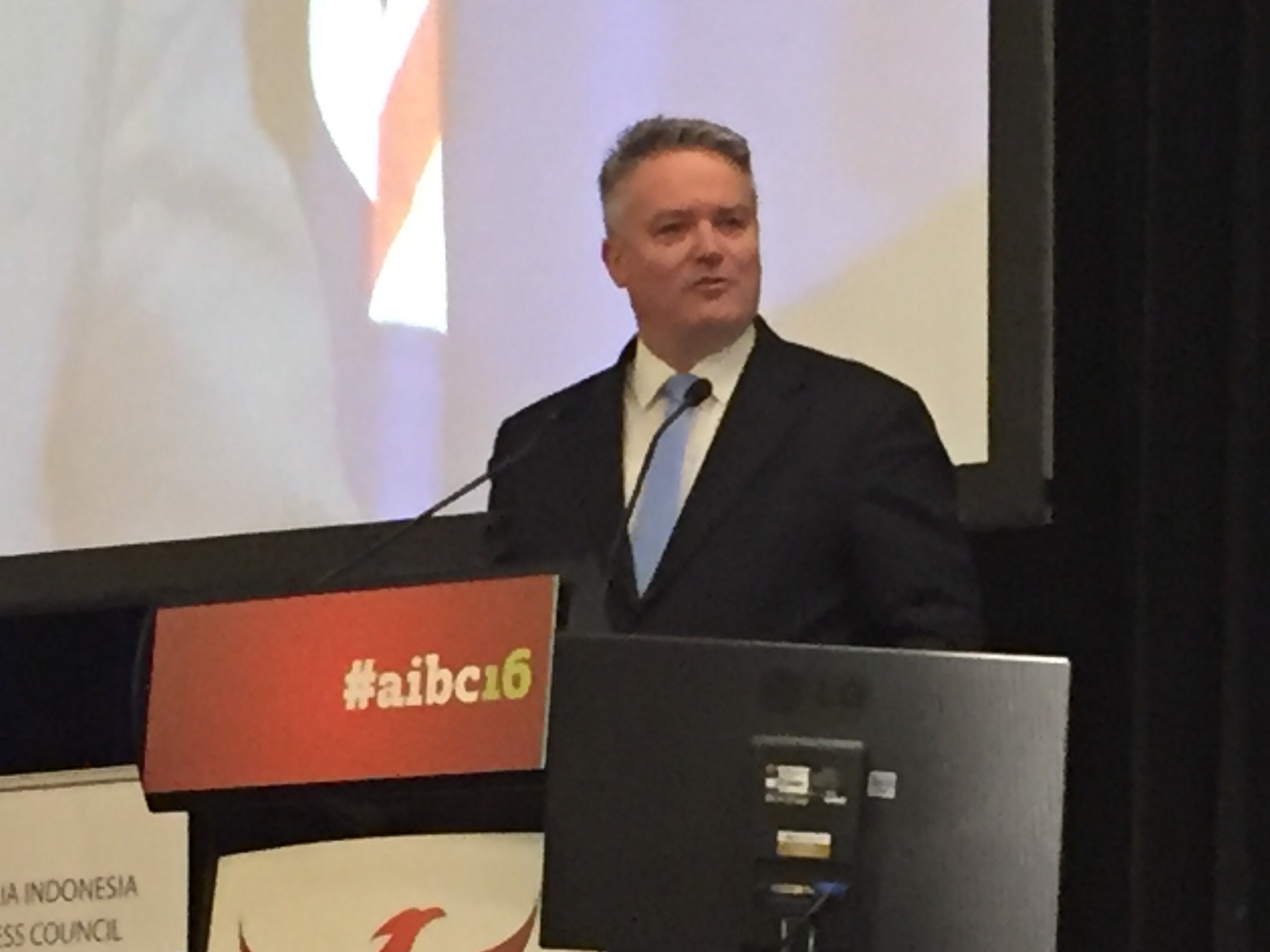I recently attended the Australia-Indonesia Business Council (AIBC) 2016 conference in Perth, an annual conference held alternately in Australia and Indonesia. Last year the Indonesia-Australia Business Council (IABC) hosted the conference in Yogyakarta. (Here’s an idea – how about holding next year’s IABC conference in Makassar?)
This year’s conference in Perth was well-organised and well-attended and brought together senior business leaders from both countries, as well as representatives from SMEs, academia and government. The theme of the conference was “Breaking Barriers, Building Bonds”.
The second half of that theme – Building Bonds – also symbolised the work that we are doing at the Australian Consulate-General in Makassar. We are building relationships that will last us into the future and open doors for people from both sides of the Arafura Sea to do business, undertake study and research and generally get to know each other better.
Conference organisers told us that the total attendance was over 270, the highest number of business participants that an AIBC conference has attracted for many years. This reflected a growing optimism about the prospects for bilateral business relations: most speakers focused on the positive dynamics generated by recent improvements in high-level relations, the President’s economic reform packages, the stimulus of increased infrastructure spending in Indonesia, and the potential of the Indonesia-Australia Comprehensive Economic Partnership Agreement (IA-CEPA, currently under negotiation) to break down barriers.
According to Peter Fanning, a member of the IABC board, this was the highest attendance since 1997 when around 350 people attended the AIBC conference in Melbourne. Nineteen years ago Indonesia was the darling of the international investment community, but only a few months after the 1997 AIBC conference the “KrisMon” (monetary crisis) hit Southeast Asia, then the Soeharto regime fell in 1998, and numbers attending subsequent AIBC conferences plunged.
 The opening keynote speech of this year’s conference program was given by the Minister for Finance, Senator the Hon Mathias Cormann who spoke about the strengths of our two economies, and noted that Indonesia was currently the world’s 16th largest economy but predicted to become the 4th largest in 2050.
The opening keynote speech of this year’s conference program was given by the Minister for Finance, Senator the Hon Mathias Cormann who spoke about the strengths of our two economies, and noted that Indonesia was currently the world’s 16th largest economy but predicted to become the 4th largest in 2050.
Several other senior politicians attended the conference, including the Minister for Justice the Hon Michael Keenan MP; the Shadow Treasurer the Hon Chris Bowen; the West Australian Minister for State Development Bill Marmion; and the West Australian Shadow Minister for Trade and Asian Engagement, Peter Tinley.
Minister for Finance, Senator the Hon Mathias Cormann at #AIBC2016 opening
Such senior participation was very welcome, raised the profile and standing of the conference, and showed a keen focus on the potential for economic engagement between our two countries.
For me, an interesting issue that cropped up was the poor state of Indonesian language studies in Australia. Professor David Hill, Director of ACICIS Study Indonesia, raised this matter in several questions to speakers. As a former Indonesian language teacher I supported his concerns, saying that Australia needs to put more resources into learning the language and culture of our closest neighbour. But I also noted that more resources are essential for English language learning in Indonesia. I argued that governments need to lead communities in encouraging study of the language of our nearest neighbours.
In a comment to Ministers Cormann and Keenan I introduced the new Australian Consulate-General in Makassar, and encouraged AIBC and IABC members to look east, to visit our new offices in Wisma Kalla, Makassar to chat about trade, investment and education opportunities in the eastern provinces of Indonesia. I pointed out the rapid growth rates for South Sulawesi (over eight per cent in Q2 2016) and other provinces in eastern Indonesia, and highlighted the huge infrastructure development plans that the Joko Widodo government has for this part of the world.
Among the senior Indonesian government representatives that attended the Perth conference was the Deputy Minister for International Tourism, Prof I Gde Pitana. Prof Gde is an old friend who studied at ANU in Canberra in the mid-2000s. We got to know each other well then, when I was based in DFAT in Canberra. These relationships between Australian and Indonesian officials are enduring and important. They are part of what makes a good neighbourly relationship work.
Prof Gde was the keynote speaker at the AIBC conference dinner. He made a good point about building bonds: tourism promotes “people-to-people” links and understanding. And despite the ups and downs in our relationship, tourism between Australia and Indonesia keeps growing.
There were many important speakers at the conference, newcomers to the bilateral relationship and some wise old hands with many years of Oz-Indonesian experience. Hearing from the elders is always fun: their stories help bind together the business community.
But the young folk were there in good form too, and Ambassador Grigson made a special effort to encourage young, early career business professionals to grow the bilateral relationship. In a panel with Ambassador Najib he also said it was important that we focus on what we have in common and the successes we have achieved, and the importance of the regions in our bilateral relationship.
I couldn’t agree more. The future of the Australia-Indonesia relationship depends heavily on our young people building bonds, and also on the Provinces and States doing more business together, and generating greater understanding between our two peoples.
Encouraging these dynamics are key focus areas for us at the Australian Consulate-General in Makassar.
***
